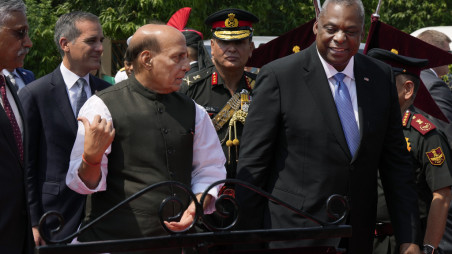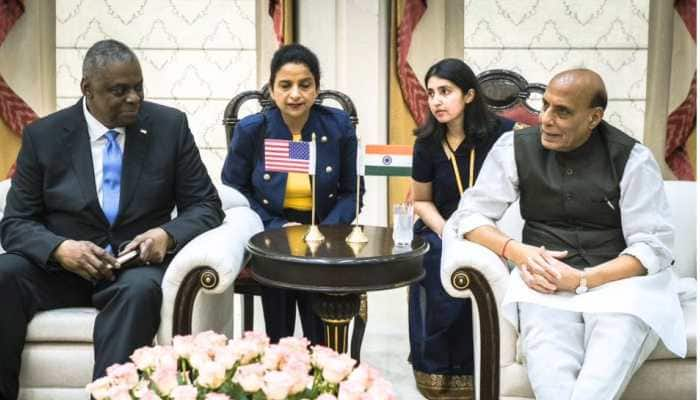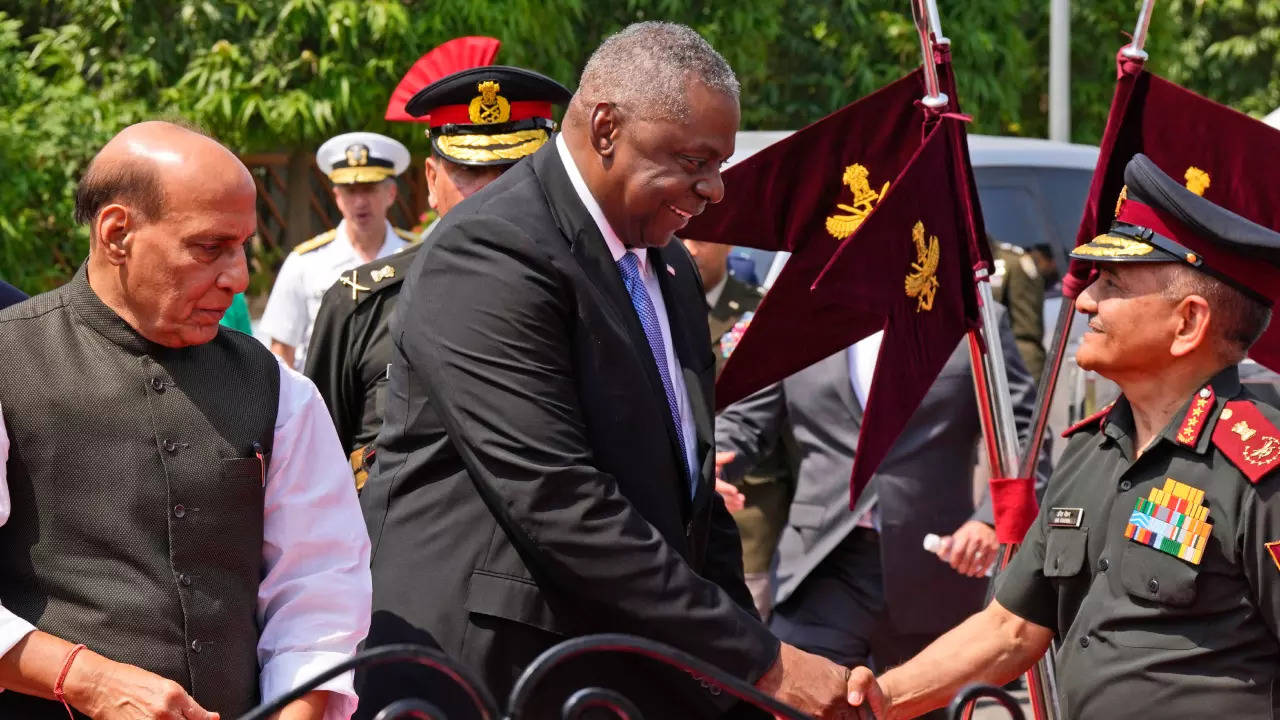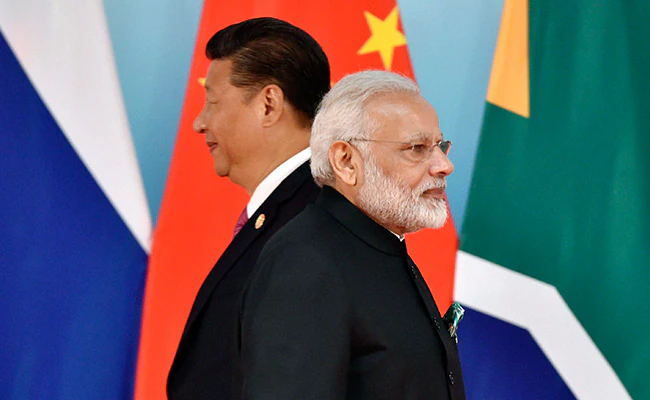In a significant development, India provided a comprehensive update to the United States regarding the prevailing situation along the Line of Actual Control (LAC) in eastern Ladakh. This region has been a source of ongoing border disputes between the Indian Army and the Chinese People’s Liberation Army for over three years. During talks between our nation defense minister, Rajnath Singh, and his American counterpart, Lloyd J. Austin, officials familiar with the matter shared information about the Chinese military’s buildup along the contested LAC and India’s countermeasures to address any potential contingencies.
The discussions at the delegation level encompassed various aspects, including the regional security situation, recent developments along the LAC, and concerns over Pakistan-backed terrorism. Both our nation and the United States have been closely monitoring China’s activities in the region, as well as its broader moves in the Indo-Pacific. While the details of the talks were not disclosed, an official, speaking on the condition of anonymity, highlighted the importance of tracking China’s actions and maintaining vigilance.
Despite having conducted 18 rounds of talks aimed at deescalating tensions along the LAC, certain outstanding issues, particularly at Depsang and Demchok, still remain unresolved. Although disengagement efforts have been implemented in Galwan Valley, Pangong Tso, Gogra (PP-17A), and Hot Springs (PP-15) through four rounds of negotiations, both the Indian and Chinese armies continue to deploy over 60,000 troops each, along with advanced weaponry, in the Ladakh theater.

China’s significant expansion of airfields along the LAC since 2020 has enabled its military to enhance operational capabilities and counter India’s advantages in certain areas. An analysis of satellite imagery conducted by HT revealed these developments. The ground changes observed since the military standoff began in May 2020 indicate that China has undertaken a substantial expansion of airfields, helipads, railway facilities, missile bases, roads, and bridges. These developments aim to facilitate rapid troop deployment and establish a range of offensive capabilities.
India Briefs United States on Ongoing LAC Tensions, Urges Collaborative Action
Apart from the discussions between Rajnath Singh and Lloyd J. Austin, the latter also held talks with India’s National Security Advisor, Ajit Doval. The US Department of Defense released a statement affirming the exchange of perspectives on various regional security issues and expressing a commitment to close collaboration with India in advancing their shared vision for a free and open Indo-Pacific.
This dialogue comes at a time when China is actively seeking to expand its influence in the region. Austin, in his comments to reporters, highlighted the need for democracies to unite against bullying and coercion exhibited by China, as well as the Russian aggression in Ukraine that threatens national sovereignty. He emphasized that preserving freedom is crucial for peace, prosperity, and requires robust leadership from both the US and India.
During the discussions, Ajit Doval and Lloyd J. Austin also addressed regional and global security concerns, including maritime security in the Indian Ocean region. The US Secretary of Defense welcomed Doval’s perspective on shared security interests and objectives, particularly emphasizing the importance of enhanced maritime collaboration. The centrality of the US-India partnership in maintaining peace and security in the Indo-Pacific region was underscored in all engagements.
India has consistently advocated for a free, open, and inclusive order in the Indo-Pacific, based on respect for the sovereignty and territorial integrity of all nations. India’s approach prioritizes the peaceful resolution of disputes through dialogue and adherence to international laws. These principles gain significance as China asserts its claims over substantial portions of the disputed South China Sea, raising concerns about regional tensions.
India and United States Strengthen Cooperation in Addressing China’s Aggressive Moves and Promoting a Free and Open Indo-Pacific
Rajnath Singh expressed the critical nature of the India-US partnership in ensuring a free, open, and rules-based Indo-Pacific region. He conveyedhis eagerness to work closely with the US across various domains to strengthen capacity-building efforts and further consolidate the strategic partnership. The defense minister shared this sentiment on Twitter, underscoring the importance of joint endeavors between India and the US.
India is actively monitoring China’s assertive actions in the South China Sea and taking necessary measures to prevent the Chinese navy from exerting undue influence in the Indian Ocean. The Indian Navy has deployed combat-ready warships, conducting round-the-clock surveillance to detect any unusual activities in the region.
In summary, our nation briefing to the United States regarding the LAC situation serves as an important step in fostering collaboration and understanding between the two nations. The discussions highlighted the need to address China’s aggressive moves, protect national sovereignty, and promote a free and open Indo-Pacific region.

